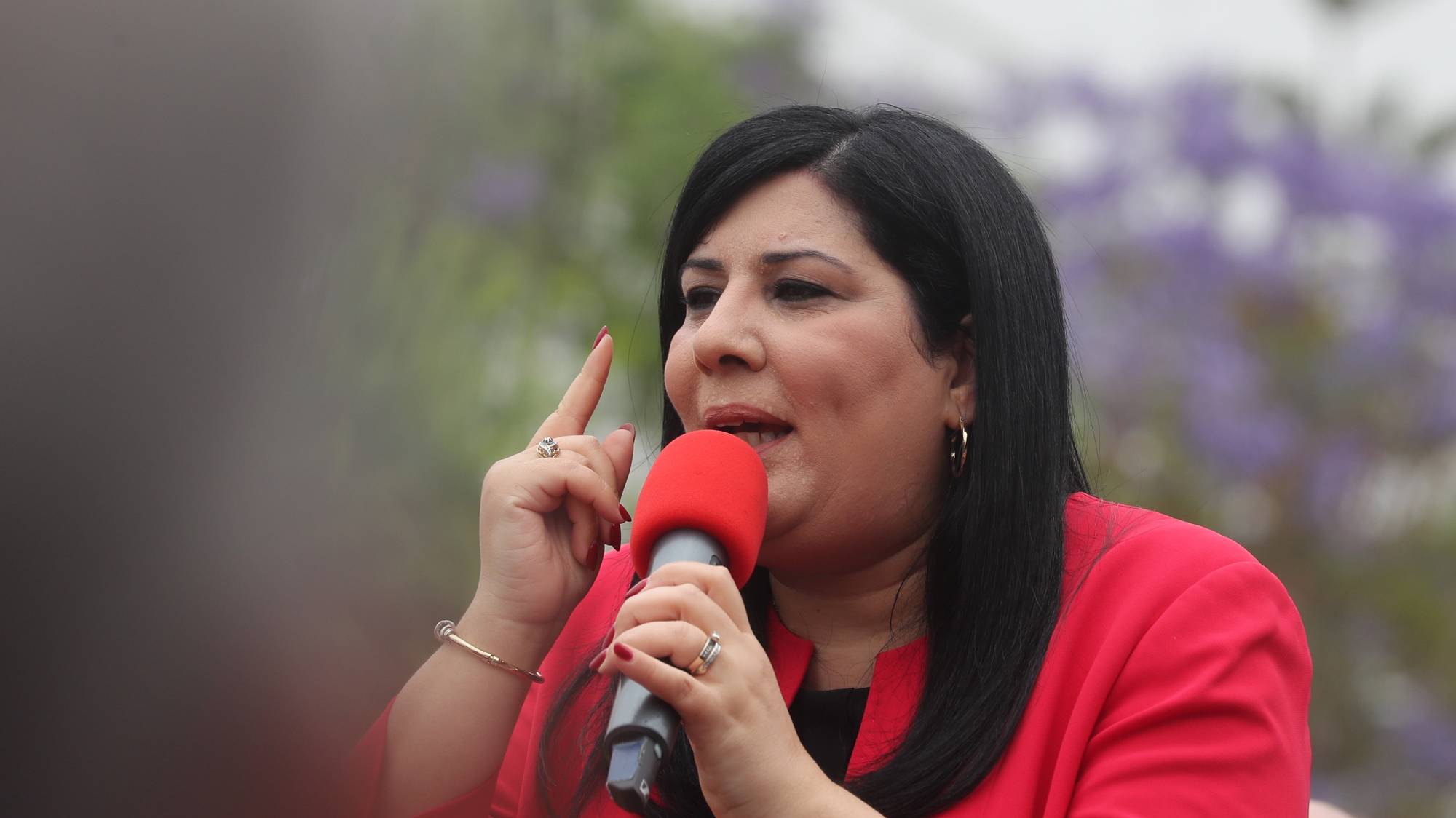The trial against Abir Moussi, leader of the Free Destourian Party, was held under a decree that punishes rumours and “false” news with sentences of up to ten years in prison.
A Tunisian court has sentenced opposition leader Abir Moussi, leader of the Free Destroyer Party (PDL) – which brings together those nostalgic for the former Tunisian regime – to two years in prison for “defamation” against the electoral body, it was announced on Tuesday.
The decision was announced just hours before the deadline for registering to vote for the presidential election on October 6, and the Tunisian court also sentenced the man to eight months in prison.three other political figures who had declared their intention to participate in the vote.
The court of first instance in Tunisia considered that Moussi, in preventive detention since last October for a Alleged case of “attack with the aim of changing the form of government”committed an infraction against the Independent Superior Electoral Authority (ISIE) after criticizing the organization’s performance in a statement released in early 2023.
The deliberation was carried out under a Decree punishing “false” rumors and news with sentences of up to ten years in prison.
Moussi’s defence committee said the leader’s statements were “based on an objective analysis” and denounced judicial persecution to exclude the opposition leader from political life and the presidential elections.
According to the few official surveys published, Abir Moussialso a lawyer, He would be the second most voted candidate after the Tunisian presidentKais Saied, who has already filed for re-election.
The conservative PDL claims to have submitted Moussi’s candidacy file, but ISIE clarified that the detainees cannot establish their residence or carry out their electoral campaign, in accordance with the law.
President Kais Saied on Monday registered his re-election for a second five-year term, in order to “continue the path of the national liberation struggle” which he said he had begun after assuming full powers in 2021.
Political parties and civil society organisations warn of a “climate of fear and intimidation” for the arrest of potential candidates, as well as for the repression “against all those who criticize the actions or biases” of the ISIE.
This Tuesday, The same court in Tunisia also sentenced five politiciansthree of them potential candidates for the presidential elections in October, for the crimes of “falsifying sponsorship” and “distributing donations to influence the vote”, in addition to a lifetime ban from participating in an electoral process.
Those convicted are former minister and leader of the Labour and Achievements party, Abdellatif Mekki, radio and television presenter Nizar Chaari and Mohamed Adel Eddou, while the judge handed down the same sentence with immediate execution against the president of the Association of Young Magistrates (AJM), Mourad Messaoudi and university professor Leila Hammami.
The official deadline for registration of candidates ends on Tuesday and, on August 11, the organization will decide on the applications received, starting the appeals period, and will publish the final list on September 3.
Other detained opponents, such as Issam Chebbi and Ghazi Chaouachi, accused of conspiracy against the state, had announced their intention to run for president but withdrew because they had not obtained special powers to be represented during the process.
Last Wednesday, a dozen candidates, including Nizar Chaari, a prominent Tunisian media figure, Kamel Akrout, a retired admiral, and Abdellatif Mekki, a former minister, issued a statement denouncing restrictions on their freedom of candidacy.
This week, four women working for billionaire rapper Karim Gharbi, known as ‘K2Rhym’ – a potential presidential candidate – were sentenced to between two and four years in prison for buying endorsements, and three of Chaari’s associates were arrested on the same suspicion, categorically denied by the candidate.
On Thursday, some thirty non-governmental organisations (NGOs), including the Tunisian League for Human Rights, condemned the “arbitrary arrests” of candidates.
In the same statements, the NGOs denounced an electoral authority that “lost its independence” and “a monopolization of public space” with “the use of state resources to favor one candidate to the detriment of others.”
On July 29, a first candidate, completely unknown, withdrew his candidacy after the official opening of the submission of candidacies for the Tunisian presidential elections.
Fethi Krimi, a 59-year-old worker, was the first to put forward his candidacy, according to reports and photographs broadcast by Mosaïque FM radio and other local media.
According to ISIE, more than 100 potential candidates have already collected the necessary sponsorship forms and are due to submit their applications on Tuesday, admitting that few will be able to do so legally, depending on the requirements.
Candidates must be Muslim, have only Tunisian nationality, have Tunisian parents and grandparents, be at least 40 years old and not have been convicted of electoral crimes such as foreign financing or vote-buying.
They must also obtain the signatures of support from ten deputies from both legislative chambers, from Parliament and from the newly formed National Council of Regions and Districts (CNRD), 40 presidents of local, regional and municipal councils; or 10,000 registered voters in at least 10 electoral districts, a logistics that makes the process difficult.
Source: Observadora
